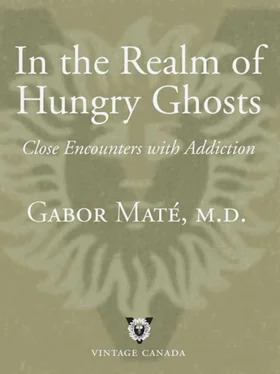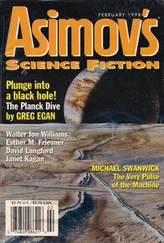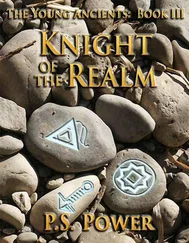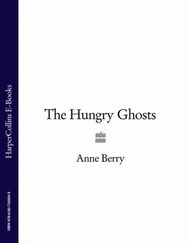Personal development took much the same course—no pun intended—except that it was even more positive off the top. It transformed my life in a number of wonderful ways, but then, it became my life in a way that didn’t work. I got to the point where I was living only to have something to talk about in the workshops, which, for me, couldn’t occur frequently enough to keep pace with my galloping conviction that I was a fraud. Meanwhile, I was trying to sell everyone on how transformed I was—and mightn’t they, too, benefit from this? I knew the word among friends and family was that I was getting weird, but I saw no other way than to keep pushing.
When I’m addicted—there, I said it—there’s a tremendous amount of drama, from the ecstatic rush of the honeymoon period all the way through to the crashing finale, when I realize this is “bad for me” and it’s gotten “out of control” and I swear off it with a heroic mix of regret, shame, and sober-sounding resolve. This happened with the blog, my “transformational” crusade and plenty of other little episodes. That’s certainly part of addiction’s sick appeal: say what you want about it, it’s pretty entertaining.
Oddly enough, the addiction really isn’t over until I can see the emptiness (in a Buddhist sense) of the behaviour: not good, not evil, and certainly not exciting, just an outside “thing” I’ve been using unintelligently to dull the suffering edge of life. I say “unintelligently” because no addiction in the history of the world ever alleviated more suffering than it ended up causing.
So it turns out that I’m not so different from you, Dad. I, too, carry a void inside—nothing exotic, just an ordinary human despair-fear-anxiety factory—and mine will try to feed on anything that gives me an instant sense of self-definition, purpose or worth. (If I want to be quippy about it, it’s a void I’ll do anything to avoid.) I may not do it with drugs or gambling or, God forbid, Beethoven, but my way can be as noxious to me as yours is to you. If I’ve learned anything, it’s that I have to be responsible for my own fear of emptiness. The fear is not personal—on the contrary it’s pretty much universal—but I got the void I got and it’s not going anywhere. When I can recognize that, I don’t make the mistake of confusing it with who I am, or worse, expending a lot of energy trying to make it go away by any available means. Instead, I can be vigilant, patient and good-humoured with it.
Love, Daniel
CHAPTER 21

Too Much Time on External Things: The Addiction-Prone Personality
There is something reassuring about bottoming out,” says Stephen Reid wryly, “a sense that you can’t fall any further.” We are facing each other across a small, square wooden table. The metal frame chairs with plastic cushions are standard cheap cafeteria issue. Nothing distinguishes this room from other drab institutional cafeterias except the guard who monitors the prisoners and their guests from her elevated, windowed cubicle.
I am at William Head Institution on Vancouver Island to interview Reid, bank robber, self-described junkie and author. There are a few others in the cafeteria, some sipping coffee by themselves, some with visitors. At the table next to us a male prisoner is massaging his female visitor’s shoulders, while the Native couple by the glass wall that faces the sea gaze in rapturous silence into each other’s eyes. Outdoors on each side wild-growing shrubs of yellow Scotch broom populate the hill that slopes sharply down to the shore. Behind them gleams the metal mesh fence topped with coiled barbed wire.
In 1999 Stephen committed what he later described as “the worst bank robbery of my life,” and was sent back to jail for eighteen years. With grey hair, round pink cheeks and walrus moustache he looks nothing like one would expect of a criminal who had perpetrated an act of violence he now speaks of with shame. He has gained a lot of weight in prison. He feels very much discouraged today, owing to a setback in his parole review process. “I binge eat when I try to deal with the impact of such disappointments,” he says. To me he looks depressed.
We are conversing about our personal experiences of addiction and the hidden emptiness at the core, which our very different addictions always promise—but always fail—to fill. It may sound surprising to say this about a self-confessed junkie and coke-addled bank robber, but there is nothing Stephen reveals about his thoughts and emotions that I don’t immediately recognize within myself.
His comment about bottoming out comes when I ask him about a passage in Junkie, an autobiographical essay he wrote for the anthology Addicted: Notes from the Belly of the Beast:
Having fallen through the crust of this earth so many times, it seems that only on this small and familiar pad of concrete, where I can make seven steps in one direction, then take seven back, do my feet touch down with any certainty. 1
Popular lore has it that the addict has to “hit bottom” before gaining the motivation to give up his habit. That may be true in some individual cases, but as a general rule it fails because what constitutes the lowest point is highly personal to each addict. For Stephen Reid, it’s the bare, concrete floor of a prison. For me, it’s the impact of my addictive behaviours on my family and the sense of alienation and shame that grows each time I indulge in a secretive purchasing binge. It’s hard to imagine how anyone would define “hitting bottom” in the cases of my Portland Hotel patients who have lost all their earthly possessions, spouses, children, self-esteem, health and the possibility of living out anything close to a normal human life span. If freedom truly is another word for nothing left to lose, the hardcore hungry ghosts inhabiting Vancouver’s Skid Row are very free indeed.
As I remarked earlier, the differences between my life and the lives of my Downtown Eastside patients are glaringly obvious. Less self-evident are the many similarities between my patterns and theirs: in the motivations that drive the addictions and in our actions around the addictive “object”—in their case and Stephen Reid’s, drugs; in mine, compact discs or public attention or the gratitude of patients or the self-oblivion of immersion in work or the constant need for consuming activity or mindless diversion. I’ve been as willing to sell my soul as they, only I charge a higher price. They settle for a bug-infested room on Hastings, my workaholism has bought me a lovely home; their object of addiction goes up their veins to be excreted by their kidneys or permeates their lungs and vanishes into the air, my shelves are lined with CDs, many of them unheard, and with books, many unread. Their addictions land them in jail; my obsessive striving for recognition and driven work habits have gained me admirers and a handsome income.
As to morality, duty and responsibility, if they have abandoned their children, I have also abandoned mine—by not being present for them and by placing a higher value on my perceived needs than on their real ones. If my patients have lied and manipulated, so have I. If they have obsessed about their next “hit,” so have I. If they persist long after the negative consequences strike them, so have I. If they repeatedly make promises and resolutions only to relapse, it’s nothing I haven’t done. If Stephen Reid fell back into his drug addictions and ended up being physically separated from his children during their growing years, I repeatedly separated myself emotionally from my family. If drug addicts sacrifice love for immediate satisfaction, I have done so as well.
Читать дальше













